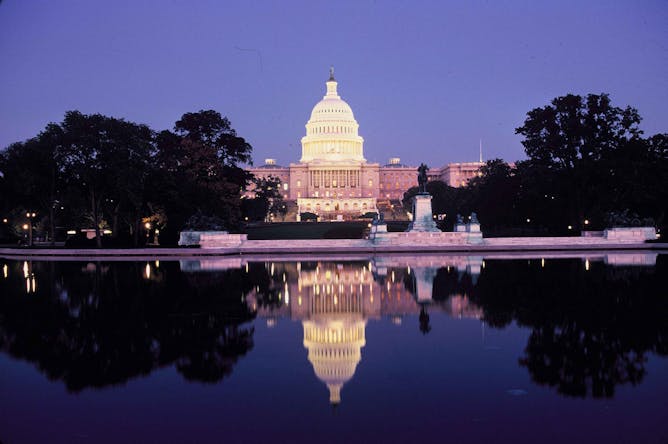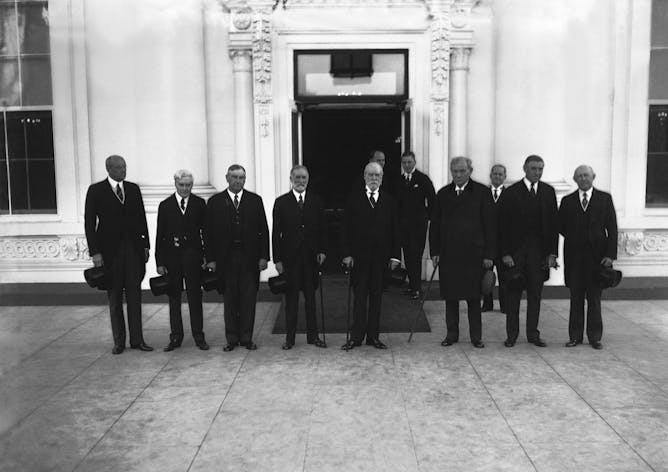|
We have a phrase at this publication for a certain kind of story: “That’s a real Conversation story.”
What that means is that the story looks at something in the news, but goes beyond the predictable to provide you with a unique and unexpected perspective on it. One of my favorites from the past year looked at the current culture war over mask-wearing. In “George Washington would so wear a mask,” a biographer of the father of our country determined that the former general and all-around very masculine guy would, indeed, have seen mask-wearing as an expression of strength.
This week, we published another one of those “real Conversation stories.” The story was connected to the impeachment trial of former President Donald Trump. The politics of the trial are being exhaustively covered. But as lawmakers in the Senate discuss the attack on what’s frequently called the country’s “temple of democracy,” or a “sacred” place, we went in another direction. We published a story that says the Capitol building’s architecture is anything but such a monument to democracy.
“As a historian of ancient Roman architecture and its legacy, I would argue that the architecture of America’s ‘temple of democracy’ is in fact fundamentally anti-democratic,” writes scholar Megan Goldman-Petri.
Other stories this week include a compelling story on the death of public political apologies – reflected in Rep. Marjorie Taylor Greene’s non-apology – as well as a nuanced examination of the last time a liberal president faced a conservative Supreme Court.
|

The U.S. Capitol is modeled on the baroque Cathedrals of Europe, which were built to honor monarchs and popes.
Pixnio
Megan Goldman-Petri, New York University
The domed neoclassical Capitol building was inspired by European cathedrals and the Roman Pantheon – shrines to imperial power, not rule by and for the people.
|

Is ‘expressing regrets’ the equivalent of sticking air quotes around apologies?
Caroline Brehman/CQ-Roll Call, Inc via Getty Images
Edwin Battistella, Southern Oregon University
US Rep. Marjorie Taylor Greene of Georgia may have expressed regrets over controversial comments and social media postings. But not to the public, and not in a way that would mitigate harm.
|

Members of the U.S. Supreme Court visit President Franklin D. Roosevelt at the White House in 1934.
AP Photo
Lucy Cane, University of Denver
The US Supreme Court is often less insulated from partisan politics than many Americans assume.
|
|
|
-
Daniel Palazzolo, University of Richmond
Politicians say they want it, but how often, and under what circumstances, does bipartisanship really happen?
-
Tracy Roof, University of Richmond
The Biden administration is trying to shore up SNAP, a mainstay of the safety net.
-
Mark Canada, Indiana University
Benjamin Franklin spoke and wrote in ways that, if taken up now, could begin to erode the polarization of the current era.
|
|